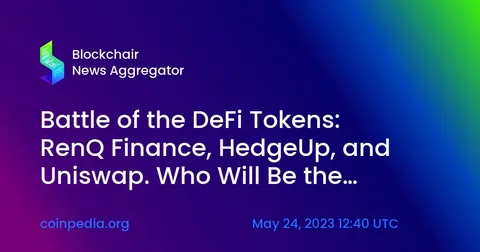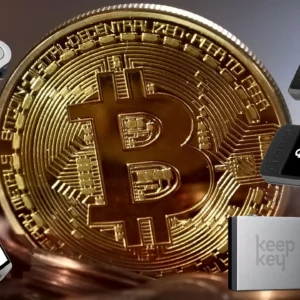Introduction
The decentralized finance (DeFi) ecosystem has undergone remarkable evolution in recent years, with a host of platforms and technologies reshaping the way we interact with financial systems. Among the trailblazers in this space, Uniswap has been a prominent player, pioneering decentralized trading and liquidity provisioning.
Uniswap’s innovation has not only brought DeFi to mainstream attention but has also fostered significant developments in decentralized exchanges (DEXs). Today, the introduction of Unichain, Uniswap’s blockchain, is positioned to further transform the DeFi ecosystem.
This dedicated blockchain promises to enhance scalability, security, and cross-chain compatibility, positioning Uniswap as a key player in shaping the future of decentralized finance.
In this blog post, we’ll explore how Uniswap’s Unichain could potentially transform the DeFi ecosystem, providing a deeper understanding of the challenges the platform addresses, the innovations it brings to the table, and its impact on both users and developers alike.
We will also discuss how Unichain stands apart from other blockchain solutions, why it’s a pivotal moment for DeFi, and what we can expect as Uniswap cements its dominance in the space. Let’s dive into how Uniswap, through Unichain, is poised to transform the decentralized financial ecosystem.

1. The Current State of DeFi and Uniswap’s Role in Its Growth
To understand the impact of Unichain, it’s essential to first reflect on the existing DeFi ecosystem and how Uniswap has contributed to its rapid growth. Decentralized finance, in its simplest terms, is the movement to build decentralized versions of traditional financial services using blockchain technology. With a focus on eliminating intermediaries like banks and other centralized entities, DeFi platforms allow individuals to lend, borrow, trade, and invest on their own terms.
Uniswap, since its inception in 2018, has been at the forefront of this movement. As one of the first DeFi protocols to popularize automated market-making (AMM), Uniswap revolutionized how users engage in decentralized exchanges.
Instead of relying on traditional order books, Uniswap leverages liquidity pools, which allow users to swap tokens without requiring a central authority to facilitate transactions. This innovation has driven liquidity and trading volume across the DeFi ecosystem and made Uniswap one of the most recognizable names in the space.
However, as DeFi grows, so do its challenges. One of the significant bottlenecks has been the reliance on Ethereum, the blockchain that powers Uniswap. While Ethereum is the backbone of many DeFi protocols, including Uniswap, its scalability issues, high gas fees, and network congestion have created barriers for users and developers alike. This is where Unichain comes into play.
Unichain is set to address these challenges by creating a dedicated blockchain for Uniswap that enhances the platform’s scalability, reduces transaction costs, and provides seamless interoperability with other chains. Through Unichain, Uniswap seeks to mitigate the limitations of the Ethereum network while retaining its decentralized ethos. This transformative move positions Unichain as a key element in the future evolution of the DeFi ecosystem.
2. What is Unichain? A Deep Dive into Uniswap’s Dedicated Blockchain
The introduction of Unichain by Uniswap represents a monumental shift in the landscape of decentralized finance. As a dedicated blockchain built specifically for Uniswap, Unichain is engineered to address the challenges and limitations that the protocol has faced on Ethereum.
At its core, Unichain is designed to provide enhanced performance, lower fees, and increased scalability while ensuring security and decentralization—hallmarks of Uniswap‘s success.
So, what exactly is Unichain? Unlike Ethereum, which supports a vast range of decentralized applications (dApps), Unichain is focused solely on optimizing Uniswap‘s operations. This specialization allows Unichain to achieve several key objectives:
- Enhanced Scalability: Ethereum’s current network limitations have caused transaction delays and network congestion, especially during periods of high demand. Unichain will scale vertically by increasing throughput and reducing transaction processing times, making the platform more efficient and user-friendly.
- Lower Transaction Costs: High gas fees on Ethereum have been a significant barrier for smaller traders and liquidity providers. With Unichain, transaction costs are expected to be drastically reduced, allowing for more cost-effective trading and liquidity provision. This will open the doors for greater participation in the DeFi ecosystem.
- Cross-Chain Compatibility: One of the most exciting features of Unichain is its ability to interact with multiple blockchain networks. Uniswap on Unichain will offer interoperability, enabling users to easily trade assets across different chains, thereby transforming the way decentralized exchanges work today.
- Security and Decentralization: Uniswap has always prioritized security and decentralization, and these principles will remain at the forefront of Unichain’s development. By building on a robust blockchain framework, Unichain will ensure the integrity of user funds and prevent attacks that could compromise the network.
Unichain will not only address the operational inefficiencies of Ethereum but will also create new opportunities for innovation within DeFi. As a dedicated blockchain, it allows Uniswap to experiment with new governance mechanisms, tokenomics, and protocol upgrades, without being constrained by Ethereum’s development cycle. This autonomy gives Uniswap more flexibility to evolve and meet the changing demands of the DeFi ecosystem.
3. Transforming User Experience: Lower Fees and Faster Transactions
One of the most immediate benefits of Unichain will be the transformation of the user experience on Uniswap. For many users, the high gas fees and slow transaction times on Ethereum have been significant deterrents to participating in DeFi.
These barriers have often limited smaller traders or those new to decentralized finance from fully engaging with the platform. Unichain is set to change this by providing a more accessible and seamless trading environment.
Reduced Fees
The cost of using Uniswap on Ethereum has been a contentious issue, with gas fees sometimes reaching exorbitant levels during periods of network congestion. These fees disproportionately affect smaller users, who may find it uneconomical to trade or provide liquidity when fees are too high.
Unichain will reduce these costs significantly, making Uniswap more inclusive and attracting a broader range of participants. By lowering the entry barriers, Unichain will bring in new users who were previously priced out of the DeFi ecosystem.
Faster Transactions
In addition to lowering fees, Unichain will significantly speed up transaction times. On Ethereum, high demand often results in delayed confirmations, causing frustration for users trying to execute trades or add liquidity. With its dedicated architecture, Unichain will offer faster transaction finality, ensuring that users can trade, stake, and withdraw their funds without the delays associated with Ethereum’s network congestion.
The transformation of user experience goes beyond just reduced fees and faster transactions. Unichain will also make it easier for users to interact with multiple blockchains, thanks to its cross-chain compatibility.
This will be a game-changer for those looking to trade assets across different ecosystems without needing to go through cumbersome and costly bridges. The enhanced user experience will transform Uniswap into a more dynamic, versatile, and user-friendly platform, cementing its place as a leader in the DeFi ecosystem.
4. Developer Opportunities and Ecosystem Growth
The introduction of Unichain will not only benefit end-users but also provide new opportunities for developers looking to build on top of Uniswap. By creating a more efficient and specialized blockchain, Unichain offers developers a platform where they can experiment with new financial applications, governance mechanisms, and smart contract functionalities without being constrained by Ethereum’s limitations.
Flexible Smart Contracts
With Unichain, developers will have greater flexibility in designing and deploying smart contracts. The dedicated nature of the blockchain allows for custom optimizations, meaning that developers can create more efficient contracts tailored to Uniswap’s liquidity pools, token swaps, and governance processes. This will foster innovation and enable the creation of more advanced financial products within the DeFi ecosystem.
Cross-Chain Integration
Another significant advantage for developers is Unichain’s cross-chain compatibility. As more blockchains emerge with their unique features and tokens, the ability to interact with multiple chains seamlessly will be a critical factor for the growth of the DeFi ecosystem.
Developers building on Unichain will have the tools to create applications that can easily interact with assets and protocols across various blockchain networks. This opens up a new realm of possibilities for decentralized applications (dApps) and protocols that need to operate across multiple chains.
Incentives for Developers
Uniswap’s governance model is also set to evolve with Unichain. Developers will likely benefit from new incentives and grant programs designed to encourage the creation of dApps and protocols on Unichain. These incentives will drive ecosystem growth and ensure that a vibrant developer community continues to push the boundaries of what’s possible within DeFi.
The growth of the Unichain ecosystem will not only benefit Uniswap but will also contribute to the broader DeFi ecosystem by encouraging interoperability, innovation, and user-centric developments. As Unichain matures, we can expect a surge in new projects, protocols, and tools that will further transform how users engage with decentralized finance.
Conclusion
Uniswap’s Unichain is set to transform the DeFi ecosystem in ways that go beyond just enhancing the platform’s scalability and reducing transaction costs. With a dedicated blockchain, Uniswap can finally overcome the limitations of Ethereum, providing a more efficient, secure, and user-friendly experience for traders, liquidity providers, and developers alike. Unichain will empower users with faster transactions, lower fees, and the ability to engage with multiple blockchains seamlessly.
As we look ahead to the future, it’s clear that Unichain will be a driving force in pushing the boundaries of what’s possible in decentralized finance. It will open up new opportunities for innovation, attract more participants to the DeFi ecosystem, and solidify Uniswap’s position as a leader in the space.
What do you think about Unichain and its potential to reshape the DeFi ecosystem? Feel free to leave your thoughts in the comments below and let’s continue the conversation about how Uniswap is set to transform decentralized finance for the better.






